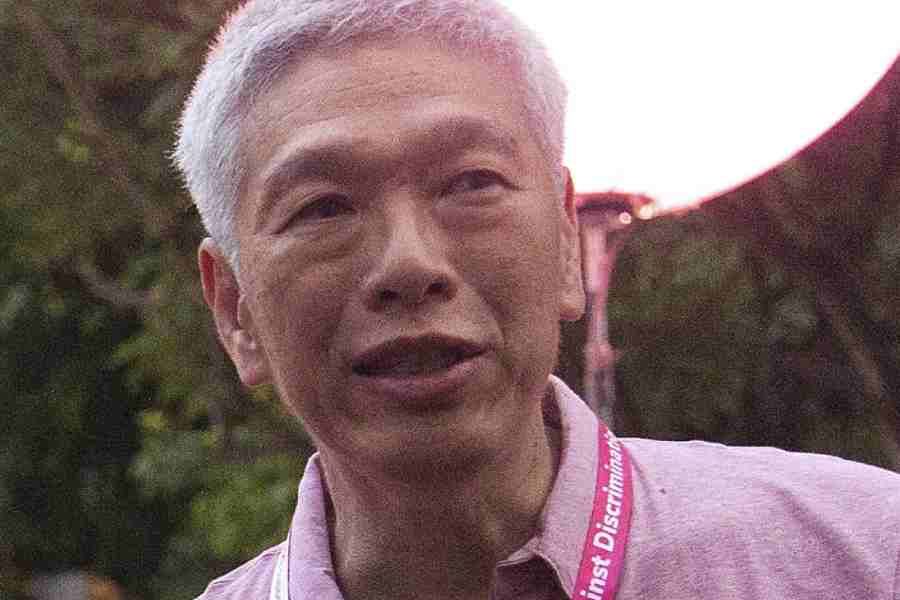Original idea
Sir — Rabindranath Tagore is perhaps the best example of the saying, ‘What Bengal thinks today, the rest of the world thinks tomorrow.’ To be an ‘influencer’ in the 21st century is par for the course. But Tagore was an influencer in the early 1900s when the Swadeshi movement was gathering steam. The poet became the face of Swadeshi marketing, endorsing products such as Kuntalin hair oil, Godrej soap, Sulekha ink and even Bournvita, writing couplets and hand-written endorsements that were printed as advertisements. Unlike modern influencers, though, Tagore was not selling products, rather his brand endorsements were aimed at promoting a self-reliant India.
Soumyadeep Banerjee, Calcutta
Toxic culture
Sir — The recent remarks by the chairman of Larsen & Toubro, S.N. Subrahmanyan, regarding employees working 90 hours a week, including on weekends, are utterly misguided. Productivity is not about the sheer number of hours worked; it is about efficiency and creativity as well as a well-balanced life. Subrahmanyan’s antiquated mindset ignores the importance of mental health, family and rest. Rather than glorifying overwork, we should be encouraging employees to prioritise well-being for sustained success. Corporate India must evolve beyond outdated work cultures and focus on nurturing a healthier, more productive workforce.
Santi Pramanick, Howrah
Sir — The suggestion by corporate leaders that employees should forgo weekends and work excessively long hours is alarming. While CEOs may benefit from lavish perks and support systems, ordinary employees face challenges balancing work, family, and personal well-being. Pushing for 90-hour workweeks undermines the human element of work and encourages unhealthy expectations.
N. Sadhasiva Reddy, Bengaluru
Sir — It is essential to understand the implicit sexism in S.N. Subrahmanyan’s objectionable comment about staring at one’s spouse. Women often bear the disproportionate burden of household responsibilities even when they contribute equally to the workforce. Corporate leaders should recognise and respect the time and energy invested by women in family roles. Rather than trivialising personal relationships, they should advocate for better work-life balance and gender equity within both the workplace and the home.
Pratima Manimala, Howrah
Sir — The increasing pressure on employees to work longer hours is creating a toxic corporate culture. Not only does it disregard personal health but it also perpetuates the outdated notion that overwork equals success. There is a wealth of research showing that shorter, more focussed, workweeks improve productivity. Corporate leaders should take heed of these findings.
A.P. Thiruvadi, Chennai
Sir — S.N. Subrahmanyan’s controversial statement about working 90-hour weeks is a stark reminder of the need for a paradigm shift in corporate attitudes. Focussing on “nation-building” while ignoring employee welfare is a dangerous approach. Flexible work conditions can foster loyalty and creativity far more effectively than a relentless work culture ever could.
Sanjit Ghatak, Calcutta
Sir — It is time we question the idea that long hours and constant sacrifices lead to professional excellence. S.N. Subrahmanyan’s comments are an unfortunate reflection of the corporate world’s lack of empathy for the personal lives of employees. CEOs must acknowledge that personal time, family bonds, and mental rest are essential for long-term success. Encouraging employees to work 90-hour weeks tarnishes a company’s image and drives away top talent.
T. Ramadas, Visakhapatnam
Sir — The recent push by corporate leaders for longer workweeks is deeply troubling. This disregard for personal time and well-being overlooks the fact that innovation and productivity stem from creativity and balance, not exhaustion. Leading by example means promoting healthier work environments, offering reasonable hours, and supporting family life. It is time for corporate India to embrace a sustainable work culture that values employees’ physical and mental health.
R.K. Jain, Barwani, Madhya Pradesh
Dangerous threat
Sir — The repeated declarations by Donald Trump, the president-elect of the United States of America, of his intent to acquire Greenland and Canada are troubling. While initially seen as reckless rhetoric, such statements reveal an imperialistic vision that undermines the sovereignty of nations. His remarks invoke dangerous historical instances where territorial ambitions led to violence. Even in the contemporary world, there are wars raging owing to such sentiments. This aggressive stance threatens international diplomacy, particularly within NATO. It is essential that the international community firmly rejects such expansionist rhetoric and upholds the principles of territorial integrity and self-determination.
Gopalaswamy J., Chennai










